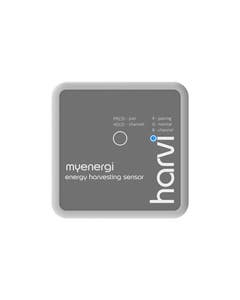We know that EVs are already cheaper to run than their petrol or diesel counterparts in the UK, and the switch to fully electric motoring in the public is well underway. In fact, in 2015 it was estimated that the combined yearly running and maintenance costs were about 10% lower for EVs than for regular cars. But, how much does it cost to charge a car?
Well, working out how much it will cost to run an electric car in your situation is not always easy as there are a few variables. In this guide, we’ll do our best to help you estimate how much it would cost to charge your EV. We’ve focussed specifically on home charging, as public charging networks can vary in pricing.
How much does an electric car cost to charge?
The formula for calculating how much it would cost to charge a battery pack from completely empty to full is quite simple:
EV Charging Cost = Size of Battery (kWh) x Cost of Electricity (pence per kWh)
In the UK in 2020, the average cost for electricity in the UK was 17.2p/kWh. Using this as a guide, the cost to charge a Tesla Model S would be around £17.20. Using the popular Nissan Leaf as an example, with its 40 kWh battery pack, this would equate to £6.88.


How much does it cost to run an electric car?
Using this, and factoring in the range of the battery, we can work out how much an electric car costs to run by the cost per mile too:
Cost per mile = Cost to charge (£) / Range (Miles)
The Nissan Leaf has an advertised range of 151 miles, so using this calculation, it would cost 5p per mile. The standard Tesla Model S from earlier has a range of 390 miles, so would cost around 4p per mile. Other publications have found broadly similar prices for other EVs for charging cost per kWh.
If we then compare this to petrol cars we can see a difference*. A more traditional petrol competitor to the Tesla Model S would be the BMW M5 which has an advertised average fuel economy figure of 25.4mpg and a 15 gallon tank. In 2020, the average cost of a gallon of petrol was £5.45. Therefore, we expect the M5 to cost £81.75 to fill with petrol from empty. Interestingly, this puts the estimated range per full tank to about the same as the Tesla at 368 miles.
Using the same formula (Cost per mile = Cost to fill(£) / Range (Miles)), we can see that the BMW M5 costs around 22p per mile! Now, we understand that most people aren’t driving around in £80k executive saloons, so what happens if we repeat the calculations with something more ‘normal’?
A mid-range VW Golf Style, is advertised with a combined mpg of 51.2 for the 1.5L petrol engine, and an 11 gallon tank. This means the estimated cost to fill is £59.95, and has an estimated range of 563 miles. This equates to a cost per mile of 10p. While this difference is nowhere near as large, it still means a similar petrol car could cost nearly double to run!
Of course, prices of electricity can vary significantly around the country with different providers and tariffs, and how much it costs to charge a car may not always be the same. You may find that by utilising an off-peak tariff, or simply by luck of where you live, you can reduce these costs further. Alternatively you may find that your car may cost more to charge, however it’s clear that electric is cheaper to run.
*note, these are average figures so only serve as a rough estimate.
How to reduce the cost of home EV charging
While already cheap, there are things you can do to further reduce the cost of charging your electric car at home:
- The simplest is to charge your car during off-peak hours to make the most of lower electricity prices. This can vary so it’s worth checking with your electricity provider, but is typically overnight.
- Install a Smart EV Charger. Smart chargers, like those from Zappi, Wallbox, EO, Project EV and more, have built in functionality that allows you to do things like select when you want to charge your car based on cheapest tariffs, select different charge speeds, set timers, monitor your car’s charge level and more. Some, such as those from Zappi, can even connect to your own Solar PV or wind generation equipment and charge from purely renewable energy sources.
- Change your electricity tariff to something that suits your EV charging habits. Providers are starting to offer EV specific tariffs, or you could switch to a fixed rate to ensure you always pay the same amount and can plan your expenses better. Your provider may be able to provide a calculator to work out the cost of electric car charging.
Explore our range of Electric Car Chargers or get in contact to find out more about installing an EV charger in your home or business premises.























